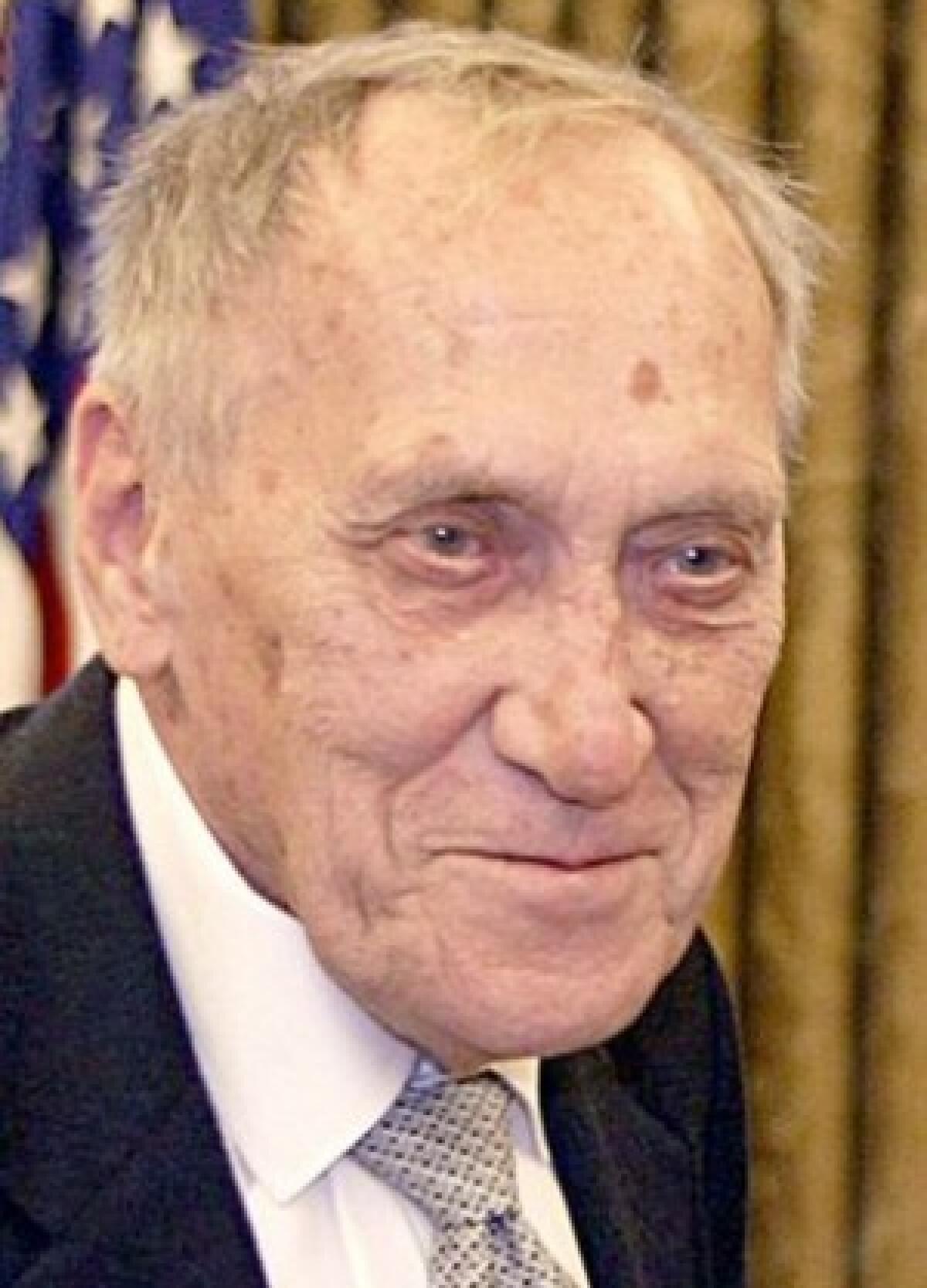Leszek Kolakowski dies at 81; exiled Polish philosopher

Leszek Kolakowski, an exiled Polish philosopher who turned against his Marxist beliefs and became an intellectual leader of Poland’s democracy movement, died Friday at a hospital in Oxford, England. He was 81.
The cause was “a sudden, short disease,” according to a death announcement by the family in the Gazeta Wyborcza newspaper, the Associated Press reported.
Kolakowski, who had lived and taught mainly at Oxford since his expulsion from Poland as a dissident in 1968, was the author of more than 30 books, of which the most influential was “Main Currents of Marxism” (1978). The massive, three-volume work is considered the definitive history and critique of Marxism, which he branded “the greatest fantasy of the 20th century.”
“We have lost a man who rendered remarkable services in the cause of a free and democratic Poland,” the speaker of Poland’s parliament, Bronislaw Komorowski, told deputies who observed a minute of silence for Kolakowski.
The recipient of a MacArthur fellowship award in 1983, the Jefferson Lecture award from the National Endowment for the Humanities in 1986 and the $1-million Kluge Prize from the Library of Congress in 2003, Kolakowski was also an essayist, playwright and historian of religion whose writing was praised by critics for its lucid, accessible style.
“Very rarely can one identify a deep, reflective thinker who has had such a wide range of inquiry and demonstrable importance to major political events in his own time,” James H. Billington, the librarian of Congress, said when Kolakowski was announced as the first Kluge Prize winner.
Born in Radom, Poland, on Oct. 23, 1927, Kolakowski grew up in Lodz under German occupation and went to underground schools. “I remember the destruction of the Warsaw Ghetto,” he wrote in a 1978 essay, “Genocide and Ideology,” and he knew Poles who risked their lives trying to rescue Jews.
After the war, he joined the Communist Party. He earned a doctorate from the University of Warsaw in 1953 and joined its faculty in 1959.
The orthodox Marxist became progressively disenchanted in postwar Poland. The disillusionment began with a three-month sojourn in Moscow in 1950 that awakened him to the intellectual and cultural poverty of Soviet life.
His calls for a more democratic version of socialism led him into conflicts with censors, causing him to be expelled from the Communist Party in 1966; he was removed from his teaching post two years later. Placed on an index of forbidden authors, he was virtually expunged from Polish intellectual life for two decades.
In exile he taught at a number of universities in the West, including UC Berkeley, McGill University in Montreal, the University of Chicago and Oxford’s All Souls College. From Oxford he provided intellectual sustenance in the 1980s to leaders of Poland’s Solidarity movement, who described him as an “awakener of human hopes.”
A contrarian by nature, he was appalled by the chaos of Berkeley in the late 1960s, terming the student movement “simply barbaric.” English historian E.P. Thompson and other critics on the left considered him politically incorrect, to which he issued a rejoinder, titled “My Correct Views on Everything” (1973).
Polish Foreign Minister Radek Sikorski said Monday that Kolakowski’s body would be returned to the country and buried with military honors.
More to Read
Start your day right
Sign up for Essential California for the L.A. Times biggest news, features and recommendations in your inbox six days a week.
You may occasionally receive promotional content from the Los Angeles Times.






